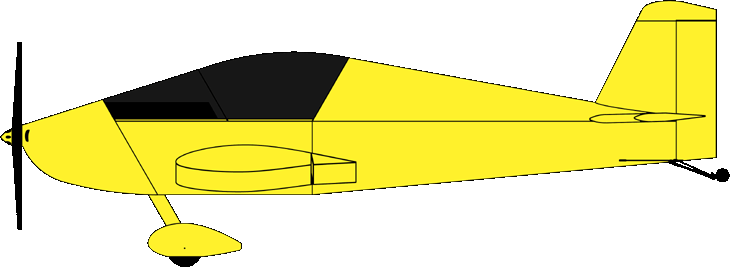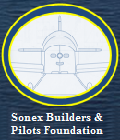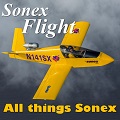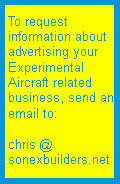

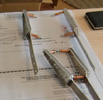
random user submitted photo
BasicMed
43 posts
• Page 2 of 5 • 1, 2, 3, 4, 5
Re: BasicMed
samiam wrote:I am a physician and an AME - here's my take on this. It's just my opinion and is worth what you paid for it - nothing.
I think the "liability concerns" are dramatically overstated. The form completed by the physician is literally a physical exam checkbox. Docs have to fill out stuff like this all of the time. You also have to state you discussed any "yes" answers on the airman questionnaire. Yes, it does take some common sense. Even if I'm not an AME, I should know that if someone has had a seizure or unexplained passing out then they should not be a pilot. But it is basically the same level of "risk" that we take on for driver's license exams or similar occupational clearances. Remember, the document was purpose built to be easily filled out by a physician who is NOT trained as an AME. I'm sure some docs will refuse, but my guess is that these will be the exception rather than the rule (but you'll hear plenty about them on the message boards).
Mike,
Do you get the impression that many AMEs will be performing these BasicMed validations for their traditional clients on a "no risk" basis (i.e. no notification to the FAA if the validation is declined)? That's a big attraction of this BasicMed approach to many pilots, in addition to the 4 year vs 2 year frequency for us folks who are 40+.
Mark
Mark Waldron
Sonex 1230 (Builder: Jay Gibbs)
Aerovee, Trigear
Sonex 1230 (Builder: Jay Gibbs)
Aerovee, Trigear
- vigilant104
- Posts: 265
- Joined: Wed Nov 09, 2011 3:34 pm
- Location: Near Dayton, OH
Re: BasicMed
Dave,
Didnt mean to sound negative about this basic med, im all for it and going to use it. Hopefully pilots will be honest with themselves about their physical and mental health.
We dont need any more accidents to make major news, and the media frenzy. Im astounded every day when i started reading www.kathrynsreport.com. Everyday. Started in 2011. Wow the number of airplane accidents daily is shocking. No wonder the insurance companies keep raising their rates.
Cant compare basic med with anything yet. Maybe in a year after rollout. There is alot of skeptics. Look at bob's eaa chapter friend whos the head of the faa central region, for medical. He called it the 'wild west' . Wow .
WaiexN143NM
Michael
Didnt mean to sound negative about this basic med, im all for it and going to use it. Hopefully pilots will be honest with themselves about their physical and mental health.
We dont need any more accidents to make major news, and the media frenzy. Im astounded every day when i started reading www.kathrynsreport.com. Everyday. Started in 2011. Wow the number of airplane accidents daily is shocking. No wonder the insurance companies keep raising their rates.
Cant compare basic med with anything yet. Maybe in a year after rollout. There is alot of skeptics. Look at bob's eaa chapter friend whos the head of the faa central region, for medical. He called it the 'wild west' . Wow .
WaiexN143NM
Michael
- WaiexN143NM
- Posts: 1206
- Joined: Mon Sep 15, 2014 1:04 am
- Location: palm springs CA
Re: BasicMed
No harm, no foul, Michael....it's easy to pick up a bit of worry about our status when you read so many accident reports....saying this from my experience as an aviation writer for some 36 years (and counting :lol: )...and didn't mean to sound harsh in my response.
Many of my closest friends are pilots -- pros, amateurs, ATPs, helicopters, etc... it's common for about half the older ones to look at Sport Pilot, Basic Med, Ultralights and such as some kind of foreign interlopers who didn't have to suffer what they did to become pilots...the others see the same options as avenues to continue flying and embrace the options...
And then there's the hard-core, doom-and-gloom guys who talk down every change, every advance as the road to perdition...they've kind of conditioned me to shoot back at their over-the-top negativity, and I confess, there was some of that reaction to what I wrote...
It might help to put the accident reports into the perspective of how many flights happen in a day, how many didn't have an accident, how many didn't go to a hospital or cemetery....
In the end, it seems to me, we pilots are far more sensitive to these reports than the public in general....unless something happens to them, to a friend or in their neighborhood, the majority of the world doesn't even notice...yeah, some stereotype -- "Those little airplanes are killing people EVER DAY!" -- that kind of thing....
But agree -- we need to fly safer, we need fewer accidents....and we're usually the cause of our own events...
So all's well...alive, well and itchin' to get airborne with friends, old, new and ones yet to be made... ;)
Many of my closest friends are pilots -- pros, amateurs, ATPs, helicopters, etc... it's common for about half the older ones to look at Sport Pilot, Basic Med, Ultralights and such as some kind of foreign interlopers who didn't have to suffer what they did to become pilots...the others see the same options as avenues to continue flying and embrace the options...
And then there's the hard-core, doom-and-gloom guys who talk down every change, every advance as the road to perdition...they've kind of conditioned me to shoot back at their over-the-top negativity, and I confess, there was some of that reaction to what I wrote...
It might help to put the accident reports into the perspective of how many flights happen in a day, how many didn't have an accident, how many didn't go to a hospital or cemetery....
In the end, it seems to me, we pilots are far more sensitive to these reports than the public in general....unless something happens to them, to a friend or in their neighborhood, the majority of the world doesn't even notice...yeah, some stereotype -- "Those little airplanes are killing people EVER DAY!" -- that kind of thing....
But agree -- we need to fly safer, we need fewer accidents....and we're usually the cause of our own events...
So all's well...alive, well and itchin' to get airborne with friends, old, new and ones yet to be made... ;)
Dave Waiex #0216
- airscribe
- Posts: 18
- Joined: Fri Dec 04, 2015 2:29 pm
- Location: Wichita, KS
Re: BasicMed
vigilant104 wrote:samiam wrote:I am a physician and an AME - here's my take on this. It's just my opinion and is worth what you paid for it - nothing.
I think the "liability concerns" are dramatically overstated. The form completed by the physician is literally a physical exam checkbox. Docs have to fill out stuff like this all of the time. You also have to state you discussed any "yes" answers on the airman questionnaire. Yes, it does take some common sense. Even if I'm not an AME, I should know that if someone has had a seizure or unexplained passing out then they should not be a pilot. But it is basically the same level of "risk" that we take on for driver's license exams or similar occupational clearances. Remember, the document was purpose built to be easily filled out by a physician who is NOT trained as an AME. I'm sure some docs will refuse, but my guess is that these will be the exception rather than the rule (but you'll hear plenty about them on the message boards).
Mike,
Do you get the impression that many AMEs will be performing these BasicMed validations for their traditional clients on a "no risk" basis (i.e. no notification to the FAA if the validation is declined)? That's a big attraction of this BasicMed approach to many pilots, in addition to the 4 year vs 2 year frequency for us folks who are 40+.
Mark
Mark,
Now that I'm an AME, it's hard to separate my brain into doing physicals as a "non-AME." Even for pilots not there for a physical, we are always considering whether or not something makes someone airworthy or not. Remember, even besides the medical, we are always responsible for self-certifying. This means that even simple things like taking an OTC cold medication should ground them for up to 4 days.
So in short, the process is really going to stay the same for me. There are a couple of upsides for aviators with basicmed: 1) they can use their health insurance for a basic physical instead of having to pay out of pocket, 2) as you mentioned, a "denial" is not the same as a denial for a regular medical, and 3) the frequency is decreased.
Mike L
Sonex #1345
Tail complete
Working on wings
Sonex #1345
Tail complete
Working on wings
- samiam
- Posts: 209
- Joined: Thu Oct 03, 2013 7:24 am
- Location: S37
Re: BasicMed
"Cant compare basic med with anything yet" I would refute that statement inasmuch as the light sport crowd has a very good record of essentially no accidents due to medical issues. Basic med will work!
- N190YX
- Posts: 80
- Joined: Thu Jun 26, 2014 7:01 pm
Re: BasicMed
samiam wrote:Mark,
Now that I'm an AME, it's hard to separate my brain into doing physicals as a "non-AME." Even for pilots not there for a physical, we are always considering whether or not something makes someone airworthy or not. Remember, even besides the medical, we are always responsible for self-certifying. This means that even simple things like taking an OTC cold medication should ground them for up to 4 days.
So in short, the process is really going to stay the same for me. There are a couple of upsides for aviators with basicmed: 1) they can use their health insurance for a basic physical instead of having to pay out of pocket, 2) as you mentioned, a "denial" is not the same as a denial for a regular medical, and 3) the frequency is decreased.
Mike,
Thanks. I see your point it's tough position to be in. With BasicMed, the doc is my agent, clearly working "for me" and attesting to the FAA that I'm fit enough to fly. But as an AME, once he's opened up the FAA software and begun to interact with the patient, he's serving as an extension of the FAA, and serving as their "agent" (though paid by the pilot). So, to switch back and forth would be tough and would blur some lines. Too bad really, because I think we'd be better off to have folks with the experience of an AME signing off on these BasicMed evals.
Sure seems crazy, er "inconsistent" to keep the third-class frequency at 2 years when a (probably less rigorous) BasicMed exam is good for 4 years.
Thanks again!
Mark Waldron
Sonex 1230 (Builder: Jay Gibbs)
Aerovee, Trigear
Sonex 1230 (Builder: Jay Gibbs)
Aerovee, Trigear
- vigilant104
- Posts: 265
- Joined: Wed Nov 09, 2011 3:34 pm
- Location: Near Dayton, OH
Re: BasicMed
vigilant104 wrote:samiam wrote:Mark,
Now that I'm an AME, it's hard to separate my brain into doing physicals as a "non-AME." Even for pilots not there for a physical, we are always considering whether or not something makes someone airworthy or not. Remember, even besides the medical, we are always responsible for self-certifying. This means that even simple things like taking an OTC cold medication should ground them for up to 4 days.
So in short, the process is really going to stay the same for me. There are a couple of upsides for aviators with basicmed: 1) they can use their health insurance for a basic physical instead of having to pay out of pocket, 2) as you mentioned, a "denial" is not the same as a denial for a regular medical, and 3) the frequency is decreased.
Mike,
Thanks. I see your point it's tough position to be in. With BasicMed, the doc is my agent, clearly working "for me" and attesting to the FAA that I'm fit enough to fly. But as an AME, once he's opened up the FAA software and begun to interact with the patient, he's serving as an extension of the FAA, and serving as their "agent" (though paid by the pilot). So, to switch back and forth would be tough and would blur some lines. Too bad really, because I think we'd be better off to have folks with the experience of an AME signing off on these BasicMed evals.
Sure seems crazy, er "inconsistent" to keep the third-class frequency at 2 years when a (probably less rigorous) BasicMed exam is good for 4 years.
Thanks again!
Mark, you are completely correct. But that is why I encourage guys to come to me for a physical (even before basicmed) so that we could address all aeromedical issues before they come for a medical and I become an "extension" of the FAA.
I also stress to pilots that the bottom line is this: if you have an aeromedical concern that makes you not fit to fly, ignoring it or not telling your AME does not do anything to help the situation. It's just like ignoring sqwawks on your airplane just because it passed its last annual. The goal of basicmed should be to decrease the beaurocratic hoops and stress related to getting a medical. But for the most part, pilots who can pass basicmed should be able to get a 3rd class as well - it might just take a lot of time and expense.
Mike L
Sonex #1345
Tail complete
Working on wings
Sonex #1345
Tail complete
Working on wings
- samiam
- Posts: 209
- Joined: Thu Oct 03, 2013 7:24 am
- Location: S37
Re: BasicMed
samiam wrote:... But for the most part, pilots who can pass basicmed should be able to get a 3rd class as well - it might just take a lot of time and expense.
That to me is the benefit of BasicMed. There are many pilots -- and I know a few -- whose situation is that every single doctor they have ever seen since they were babies has said they are perfectly healthy. But because they tick some tick-mark on the checklist, or take some medication that's on some hot-button list, they are immediately transported, Star Trek style, into this new nether world of Special Issuances and extra testing. And the excesses of this process are well known and have deterred at least one perfectly healthy person I know from pursuing aviation. Not an outcome we would like.
We blip these tick-marks on the FAA's checklists because, compared to people even just a few decades ago, we actually go to the doctor, and we get treated, and we feel better.
That said, there are people who are really not healthy enough to fly solo, and I do hope for the sake of all of us that these folks choose to take a CFI up with them, or go flying right seat with a friend, or whatever. One can still aviate without being PIC. Perhaps it's up to us to invite people who can no longer fly to fly with us, for the sake of everyone?
Ihab
Ihab Awad, San Jose, CA
- ihab
- Posts: 159
- Joined: Sat Mar 09, 2013 1:45 pm
- Location: San Jose, CA (KRHV)
Re: BasicMed
An open message to the feds:
Read below
Read below
Last edited by builderflyer on Fri Apr 21, 2017 10:34 am, edited 2 times in total.
- builderflyer
- Posts: 441
- Joined: Sat Jul 09, 2016 12:13 pm
Re: BasicMed
An open message to the feds:
As one who has a BasicMed physical scheduled with my PCP on May 2nd, I'm getting real antsy that the feds have yet to release the final version of the checklist! I'll have to give my doctor a couple of days notice that I won't be able to make the appointment and a reschedule will likely not be available for a couple of additional months or more. So if the checklist isn't out before the end of next week, me and probably hundreds of others, are "screwed". Come on feds, get your "act" together!
Art,,,,,,,,,,,,,,,,,Sonex taildragger #95,,,,,,,,,,,,,,,,Jab3300 #261
As one who has a BasicMed physical scheduled with my PCP on May 2nd, I'm getting real antsy that the feds have yet to release the final version of the checklist! I'll have to give my doctor a couple of days notice that I won't be able to make the appointment and a reschedule will likely not be available for a couple of additional months or more. So if the checklist isn't out before the end of next week, me and probably hundreds of others, are "screwed". Come on feds, get your "act" together!
Art,,,,,,,,,,,,,,,,,Sonex taildragger #95,,,,,,,,,,,,,,,,Jab3300 #261
- builderflyer
- Posts: 441
- Joined: Sat Jul 09, 2016 12:13 pm
43 posts
• Page 2 of 5 • 1, 2, 3, 4, 5
Who is online
Users browsing this forum: Google [Bot], Google Adsense [Bot] and 77 guests
